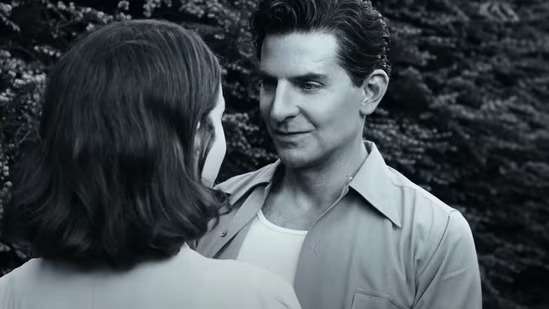The controversy surrounding Bradley Cooper’s use of a prosthetic nose in the upcoming Leonard Bernstein biopic “Maestro” has garnered attention, leading to discussions about representation and casting decisions. Amidst the criticism and concerns of stereotyping, Bernstein’s children have come forward in defense of Cooper’s portrayal of their father.
The teaser trailer for “Maestro,” where Bradley Cooper both directs and stars as the iconic American composer and conductor Leonard Bernstein, recently debuted. In the trailer, Cooper is seen wearing a prosthetic nose as part of his transformation into Bernstein, who was of Jewish heritage. This portrayal sparked discussions about the potential perpetuation of caricatures present in historical Jewish portrayals in film.
The nonprofit organization Stop Antisemitism expressed strong disapproval, claiming that Hollywood was using a caricatured “Jew nose” to depict Leonard Bernstein. Critics voiced concerns that such portrayals could reinforce harmful stereotypes.
However, Leonard Bernstein’s three children—Jamie, Alexander, and Nina Bernstein—released a statement in support of Bradley Cooper. They expressed their appreciation for Cooper’s commitment to the role, his embrace of their father’s music, and his enthusiasm for the project.
The children’s statement reads, “It breaks our hearts to see any misrepresentations or misunderstandings of his efforts. It happens to be true that Leonard Bernstein had a nice, big nose. Bradley chose to use makeup to amplify his resemblance, and we’re perfectly fine with that. We’re also certain that our dad would have been fine with it as well.”
Additionally, the statement addressed the criticism as potentially seeking to undermine a successful individual. The Bernstein children emphasized their observation of attempts to diminish accomplished figures, a trend that their father had also experienced during his lifetime.
Bradley Cooper’s representative declined to comment on the situation, while Netflix, which is set to distribute the film, also refrained from providing a statement.
The debate surrounding the Cooper-Bernstein situation highlights broader discussions about representation, casting decisions, and the portrayal of various minority groups in the entertainment industry. It reflects ongoing conversations about the authenticity of character portrayals and the implications of historical stereotypes.
“Maestro” is scheduled to premiere next month at the Venice Film Festival, with a limited theatrical release on November 22 and a streaming release on December 20 through Netflix.
While the controversy underscores the complexities of representation and historical stereotypes in the film industry, it also sparks conversations about the role of transformation in acting and the delicate balance between authenticity and creative interpretation.
